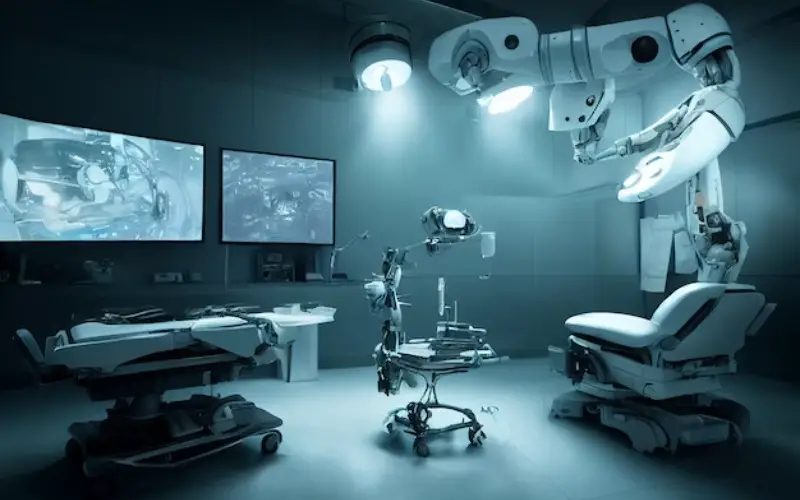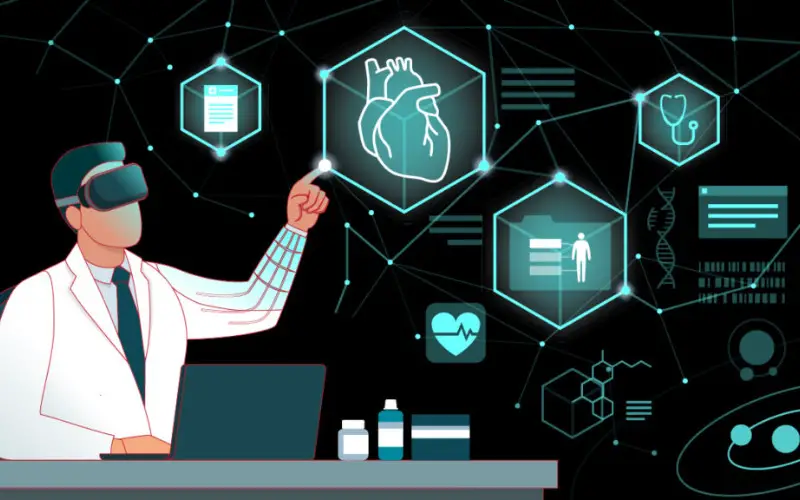
Artificial intelligence (AI) has significantly changed many fields, particularly the healthcare industry. The once-fantasy-like nature of this modern technology has changed. Instead, this constantly developing technology has impacted our daily activities in ways we could never have predicted. Because of the use of AI in the healthcare sector, the IT industry is undergoing a sea change. 1. Customers Service Chatbots Patients can ask questions regarding appointments, bill payments, and other issues utilizing chatbots generated using technologies like NLP. In addition to communicating with patients about their ailments and symptoms, chatbots can assist medical practitioners by freeing up their time. Furthermore, chatbots assist in providing the necessary solutions to patients, allowing Healthcare experts to focus on other essential tasks. This healthcare solution engages patients and offers advanced treatment and results. 2. Virtual Health Assistant The start-up Sense.ly has created a digital nurse, Molly, who can monitor patients’ conditions and provide treatments as follow-ups between doctor’s visits. In one instance, the developers helped patients with chronic conditions by using machine learning. Boston Children’s Hospital created another Amazon Alexa app in 2016, which provides parents with advice and information to help them care for their sick children’s health. The app can answer questions about medical conditions, detect symptoms, and recommend whether a doctor visit is necessary. 3. Management Of Medical Records We must cross the upcoming big data frontier of the healthcare industry. Essential and valuable data may become lost in the massive pile of data, costing the industry billions of dollars each year. Furthermore, with the ability to connect significant data points, developing proper diagnoses and new medicines and drugs is continued. Data Science in healthcare has caused several organizations to turn to artificial intelligence (AI) to stop data hemorrhaging. AI enables them to break down data and connect the required data, which previously took years to process. 4. Reduction Of Dosage Errors Not surprisingly, when patients are responsible for their medication administration – whether pills, inhalers, or insulin shots – adherence levels are suboptimal, and potentially dangerous errors occur often. MIT researchers used artificial intelligence in a recent study published in Nature Medicine to reduce the likelihood of medication errors. The new tool detects when a patient uses an insulin pen or inhaler and potentially flags errors in the patient’s administration method using wireless sensing and AI. 5. Doing Repetitive Jobs Hospitals use robots to conduct operations such as taking X-rays, doing CT scans, and putting data faster and more accurately than before. It has become especially crucial in sectors with much data, like radiology and cardiology, where analysis might take a long time. In the future, it’s conceivable that medical personnel will devote most of their attention to the trickier situations that require their skill and care, leaving the more straightforward jobs to robots. 6. Maintaining Wellness The development and use of health monitoring applications have transformed healthcare by empowering individuals to take control of their health and Wellness. These apps have changed how they approach patient care by enabling healthcare professionals to gather precise and real-time health data to identify health issues and track progress. Health monitoring applications can also assist individuals in identifying potential health risks and providing personalized recommendations to improve their overall health. And with the help of this, people can keep track of their health. There are many Wearable health trackers – like those from Fitbit, Apple, Garmin, and others. 7. Early Diagnosis Of Fatal Blood Artificial intelligence is helpful for the early diagnosis of potentially deadly blood-related disorders. Doctors can now scan blood samples for harmful substances and bacteria such as Staphylococcus, E. coli, and others using AI-enhanced microscopes much faster than manual scanning. Experts trained the robots to recognize deadly germs using photos of over 25,000 blood samples. The gadgets’ ability to identify these germs in blood and forecast their existence in fresh models with 95% accuracy, thanks to artificial intelligence (AI), has significantly decreased the number of fatalities. 8. Treatment Of Rare Diseases BERG is an AI-powered clinical-stage biotech platform that works on disease mapping to accelerate the discovery and development of advanced breakthrough medicines and vaccines, revolutionizing healthcare. It uses interrogative biology and research and development (R&D) to help medical professionals create reliable products for people with unique disorders. BERG has also presented its discovery for Parkinson’s disease treatment. This mental disorder makes people rigid, tremble, and have trouble doing everyday activities, including balancing, coordinating, and walking. Parkinson’s disease symptoms appear gradually and worsen over time, making it one of the worst diseases. 9. Medication Management The National Institutes of Health developed the Ai Cure app to track a patient’s medication use. AI is paired with a webcam on a smartphone to automatically verify that patients are taking their medications and help them manage their conditions. The most common users may be people with severe medical conditions, patients who defy doctor advice, and clinical trial participants. 10. Robot-Assisted Surgery Robot-Assisted surgery has recently gained popularity. Several hospitals use robotics to assist them in activities requiring accuracy, control, and adaptability. Doctors use it in the studies that humans cannot perform, such as open-heart surgery. Robots equipped with mechanical arms, cameras, and the necessary surgical instruments supplement doctors’ knowledge, skills, and experience, resulting in a new type of surgery. Surgeons can sit at a computer console & control the robot’s mechanical arms, while the robot provides a magnified, three dimensional view of the surgical site that is impossible to see with their own eyes. Robot-assisted surgeries result in fewer complications, less patient pain, and faster recovery. To summarize, artificial intelligence transforms healthcare by enabling faster & more accurate diagnoses, personalized treatments, and remote patient care. We expect to see even more innovative applications that improve patient outcomes and healthcare delivery as AI technology advances. Healthcare’s future is exciting, and artificial intelligence (AI) is at the forefront of this transformation.
Artificial intelligence (AI) has significantly changed many fields, particularly the healthcare industry. The once-fantasy-like nature of this modern technology has changed. Instead, this constantly developing technology has impacted our daily activities in ways we could never have predicted. Because of the use of AI in the healthcare sector, the IT industry is undergoing a sea change.
1. Customers Service Chatbots
Patients can ask questions regarding appointments, bill payments, and other issues utilizing chatbots generated using technologies like NLP. In addition to communicating with patients about their ailments and symptoms, chatbots can assist medical practitioners by freeing up their time. Furthermore, chatbots assist in providing the necessary solutions to patients, allowing Healthcare experts to focus on other essential tasks. This healthcare solution engages patients and offers advanced treatment and results.
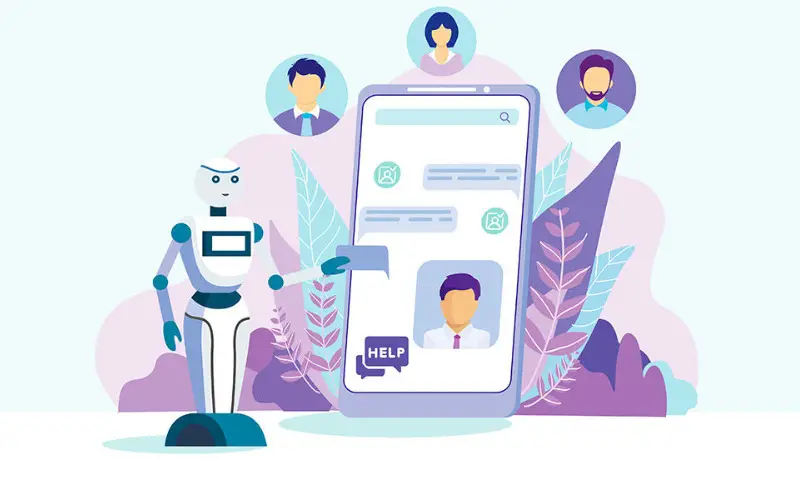
2. Virtual Health Assistant
The start-up Sense.ly has created a digital nurse, Molly, who can monitor patients’ conditions and provide treatments as follow-ups between doctor’s visits. In one instance, the developers helped patients with chronic conditions by using machine learning. Boston Children’s Hospital created another Amazon Alexa app in 2016, which provides parents with advice and information to help them care for their sick children’s health. The app can answer questions about medical conditions, detect symptoms, and recommend whether a doctor visit is necessary.
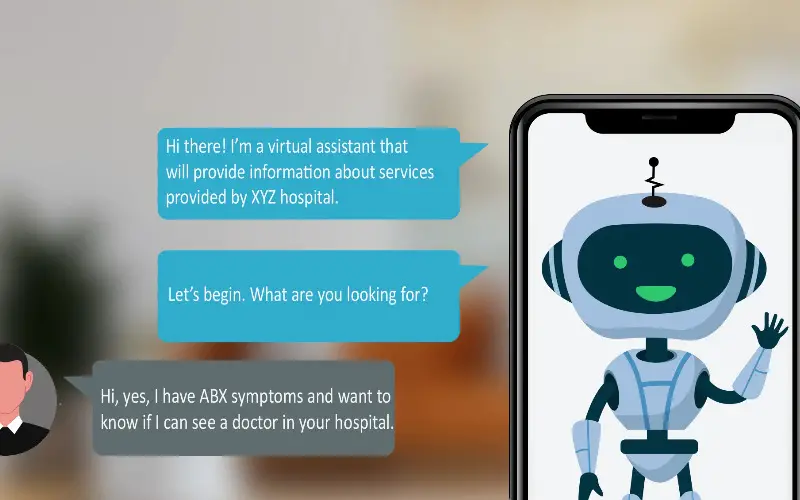
3. Management Of Medical Records
We must cross the upcoming big data frontier of the healthcare industry. Essential and valuable data may become lost in the massive pile of data, costing the industry billions of dollars each year. Furthermore, with the ability to connect significant data points, developing proper diagnoses and new medicines and drugs is continued. Data Science in healthcare has caused several organizations to turn to artificial intelligence (AI) to stop data hemorrhaging. AI enables them to break down data and connect the required data, which previously took years to process.

4. Reduction Of Dosage Errors
Not surprisingly, when patients are responsible for their medication administration – whether pills, inhalers, or insulin shots – adherence levels are suboptimal, and potentially dangerous errors occur often. MIT researchers used artificial intelligence in a recent study published in Nature Medicine to reduce the likelihood of medication errors. The new tool detects when a patient uses an insulin pen or inhaler and potentially flags errors in the patient’s administration method using wireless sensing and AI.
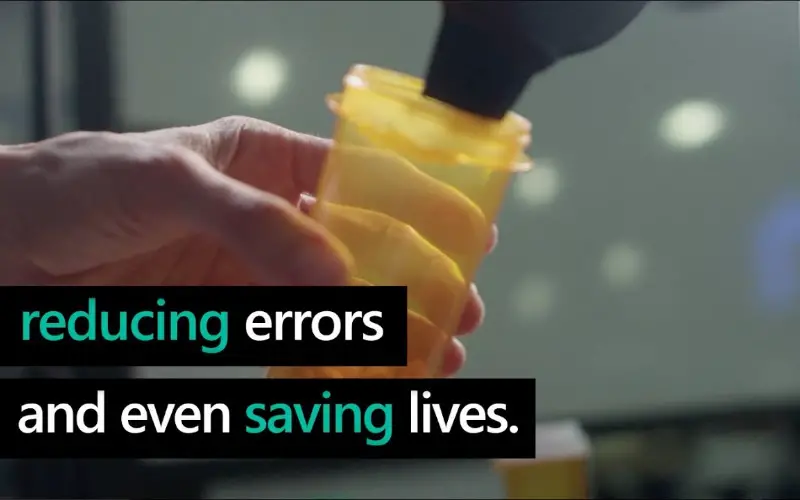
5. Doing Repetitive Jobs
Hospitals use robots to conduct operations such as taking X-rays, doing CT scans, and putting data faster and more accurately than before. It has become especially crucial in sectors with much data, like radiology and cardiology, where analysis might take a long time. In the future, it’s conceivable that medical personnel will devote most of their attention to the trickier situations that require their skill and care, leaving the more straightforward jobs to robots.
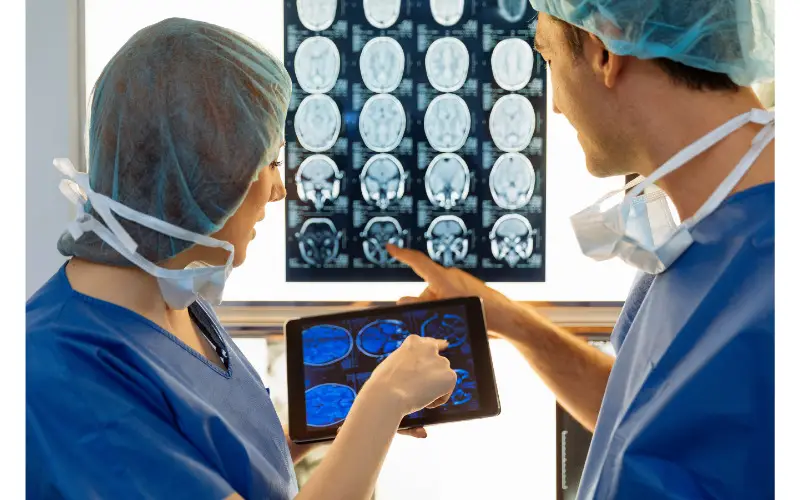
6. Maintaining Wellness
The development and use of health monitoring applications have transformed healthcare by empowering individuals to take control of their health and Wellness. These apps have changed how they approach patient care by enabling healthcare professionals to gather precise and real-time health data to identify health issues and track progress. Health monitoring applications can also assist individuals in identifying potential health risks and providing personalized recommendations to improve their overall health. And with the help of this, people can keep track of their health. There are many Wearable health trackers – like those from Fitbit, Apple, Garmin, and others.
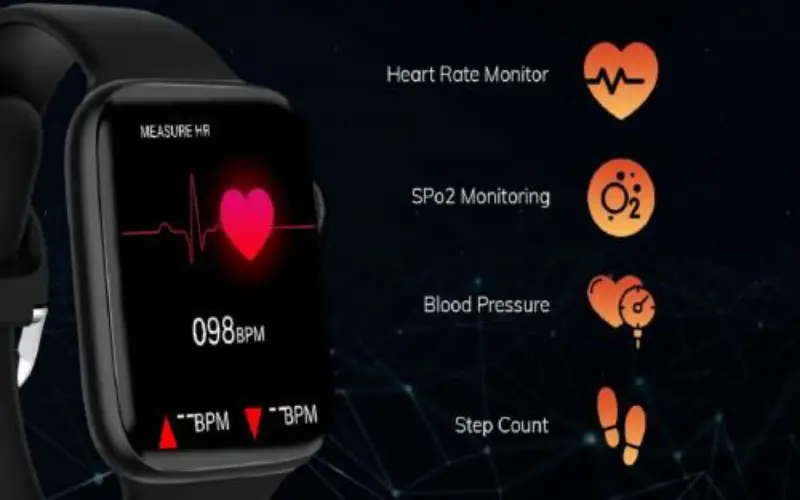
7. Early Diagnosis Of Fatal Blood
Artificial intelligence is helpful for the early diagnosis of potentially deadly blood-related disorders. Doctors can now scan blood samples for harmful substances and bacteria such as Staphylococcus, E. coli, and others using AI-enhanced microscopes much faster than manual scanning. Experts trained the robots to recognize deadly germs using photos of over 25,000 blood samples. The gadgets’ ability to identify these germs in blood and forecast their existence in fresh models with 95% accuracy, thanks to artificial intelligence (AI), has significantly decreased the number of fatalities.

8. Treatment Of Rare Diseases
BERG is an AI-powered clinical-stage biotech platform that works on disease mapping to accelerate the discovery and development of advanced breakthrough medicines and vaccines, revolutionizing healthcare. It uses interrogative biology and research and development (R&D) to help medical professionals create reliable products for people with unique disorders. BERG has also presented its discovery for Parkinson’s disease treatment. This mental disorder makes people rigid, tremble, and have trouble doing everyday activities, including balancing, coordinating, and walking. Parkinson’s disease symptoms appear gradually and worsen over time, making it one of the worst diseases.
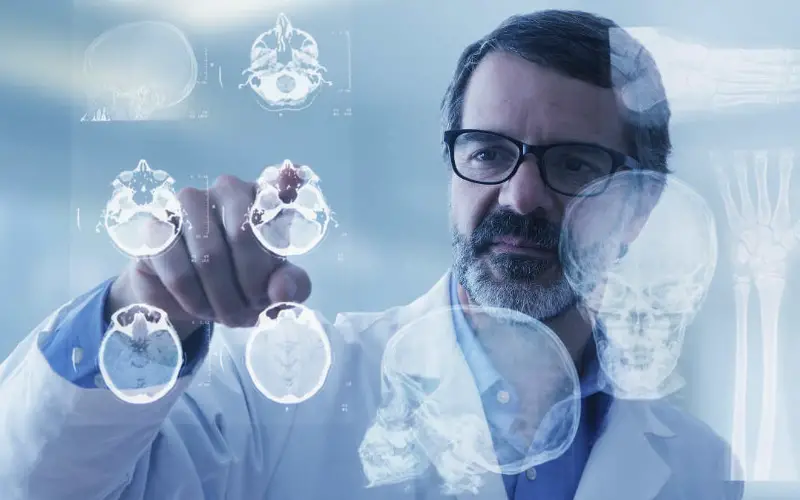
9. Medication Management
The National Institutes of Health developed the Ai Cure app to track a patient’s medication use. AI is paired with a webcam on a smartphone to automatically verify that patients are taking their medications and help them manage their conditions. The most common users may be people with severe medical conditions, patients who defy doctor advice, and clinical trial participants.

10. Robot-Assisted Surgery
Robot-Assisted surgery has recently gained popularity. Several hospitals use robotics to assist them in activities requiring accuracy, control, and adaptability. Doctors use it in the studies that humans cannot perform, such as open-heart surgery. Robots equipped with mechanical arms, cameras, and the necessary surgical instruments supplement doctors’ knowledge, skills, and experience, resulting in a new type of surgery. Surgeons can sit at a computer console & control the robot’s mechanical arms, while the robot provides a magnified, three dimensional view of the surgical site that is impossible to see with their own eyes. Robot-assisted surgeries result in fewer complications, less patient pain, and faster recovery. To summarize, artificial intelligence transforms healthcare by enabling faster & more accurate diagnoses, personalized treatments, and remote patient care. We expect to see even more innovative applications that improve patient outcomes and healthcare delivery as AI technology advances. Healthcare’s future is exciting, and artificial intelligence (AI) is at the forefront of this transformation.
